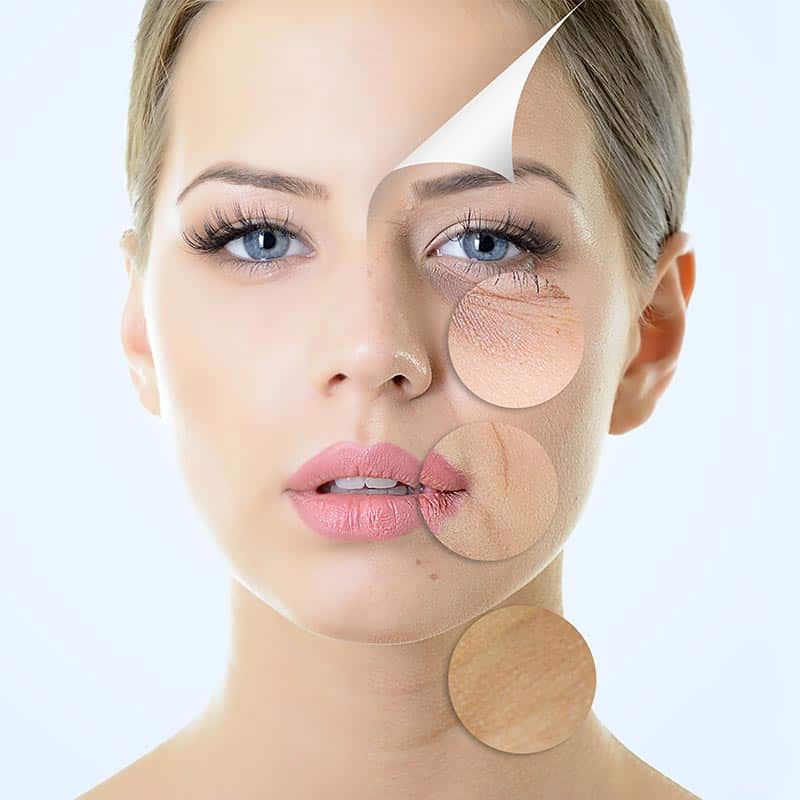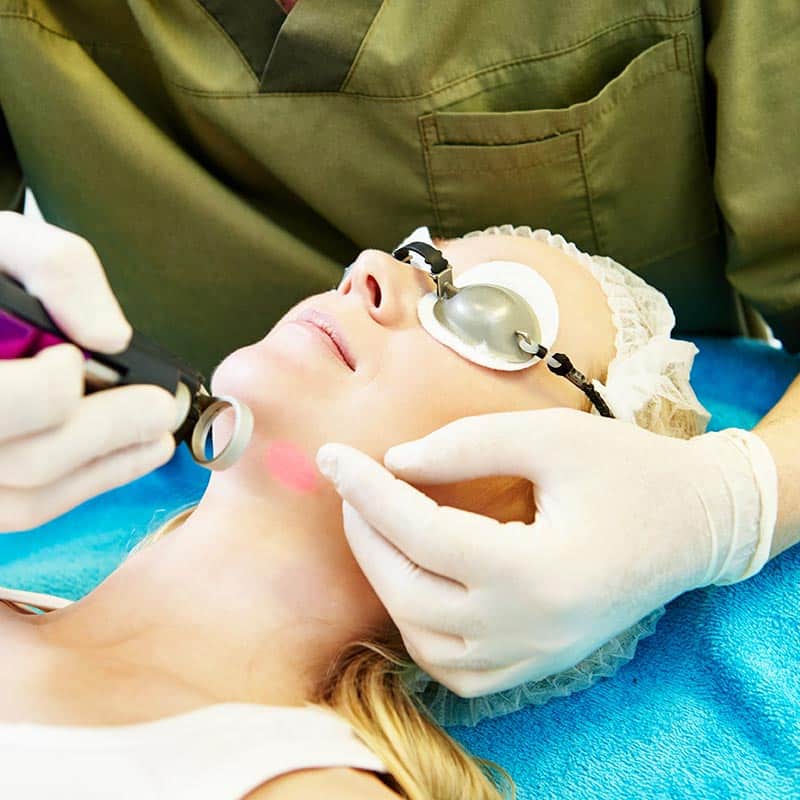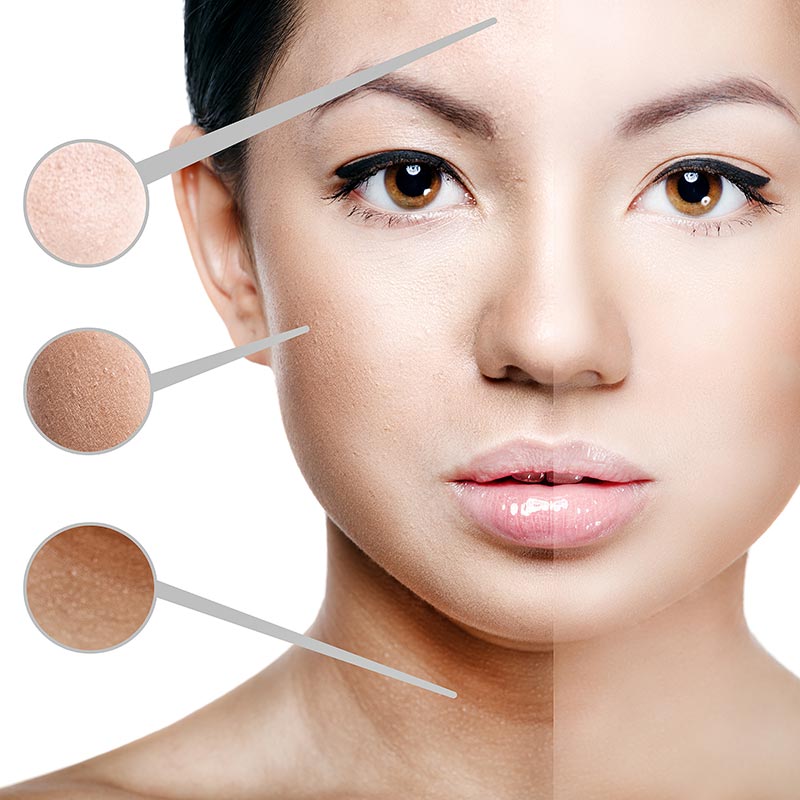
Anti-aging and skin rejuvenation
Anti-aging and skin rejuvenation are now possible through various aesthetic procedures. Here are some of the common terms and techniques used in this context:
These techniques offer customized solutions for different anti-aging and skin rejuvenation needs. It is important to have these procedures performed by experienced professionals to ensure optimal results and safety.
Medical cosmetics
- Facials
- Permanent make-up
- Carboxytherapy
- HydraFacial MD
- Holywood Carbon Peel
- Skin analysis



Laser treatments
- Permanent hair removal
- Beard contouring
- Tattoo removal
- Scar removal
- Permanent make-up removal
Dermatology
Dermatology is the medical specialty that focuses on the diagnosis, treatment, and prevention of diseases affecting the skin, hair, nails, and mucous membranes. Dermatologists are specialized doctors who manage both medical and cosmetic skin issues, including skin diseases, skin cancer, infections, allergies, and aging skin. Dermatology encompasses both non-invasive and invasive procedures aimed at maintaining and improving skin health and appearance.

Dermatology covers a wide range of skin conditions and issues, including:
- Acne: A common skin condition characterized by clogged pores, blackheads, and pimples.
- Eczema: An inflammatory skin condition that leads to itchy, red, and irritated skin.
- Psoriasis: A chronic autoimmune disease that accelerates skin cell production, resulting in thick, scaly patches of skin.
- Skin Cancer: Malignant skin tumors such as basal cell carcinoma, squamous cell carcinoma, and melanoma.
- Allergic Skin Reactions: Rashes and irritations caused by allergens or irritants.
- Rosacea: A chronic skin condition that causes redness and visible blood vessels in the face.
- Hair and Nail Disorders: Conditions such as hair loss (alopecia), dandruff, and nail fungus infections.
Methods:
Description:
Dermatological procedures vary depending on the type and severity of the skin condition. They can include medication treatments, topical therapies, minimally invasive procedures, surgical interventions, and cosmetic treatments. Dermatologists use advanced technologies and techniques to diagnose and treat skin conditions and improve the skin’s appearance.Procedure:
- Medication Treatments: Dermatologists prescribe medications such as antibiotics, steroids, retinoids, and immunosuppressants to treat various skin conditions.
- Topical Therapies: Creams, ointments, and gels applied directly to the skin to reduce inflammation, fight infections, or relieve skin problems.
- Laser Therapies: Lasers are used to treat skin issues like pigmentation spots, acne scars, wrinkles, and unwanted hair growth.
- Surgical Interventions: Skin surgery is performed to remove skin cancer, cysts, moles, and other skin abnormalities. Surgical techniques include excision and Mohs surgery.
- Cosmetic Treatments: Fillers, botulinum toxin injections (Botox), chemical peels, and microneedling to enhance skin appearance and reduce signs of aging.
Advantages:
- Comprehensive Treatment: Dermatology provides comprehensive care for all skin issues, from medical to cosmetic needs.
- Early Detection and Prevention: Regular skin exams can help detect skin cancer and other serious skin conditions early for timely treatment.
- Advanced Technologies: Use of the latest technologies and techniques for diagnosing and treating skin conditions.
- Individualized Treatment Plans: Dermatologists create personalized treatment plans based on the patient’s specific needs and goals.
Disadvantages:
- Cost: Dermatological treatments can be expensive, especially cosmetic procedures that are often not covered by insurance.
- Side Effects: Some dermatological treatments can cause side effects like redness, swelling, scarring, or allergic reactions.
- Need for Repeated Treatments: Many dermatological treatments require multiple sessions to achieve optimal results.
- Time Commitment: Some treatments and recovery processes can be time-consuming, which can be challenging for patients with busy schedules.
Conclusion:
Dermatology is a comprehensive medical specialty dedicated to the care and improvement of skin health. It offers a wide range of diagnostic and therapeutic options to treat skin conditions and improve skin appearance. By working closely with a dermatologist, patients can effectively manage their skin problems and take preventive measures to maintain healthy skin in the long term. Careful selection of treatment methods and continuous monitoring are crucial to achieving the best results and minimizing potential risks.